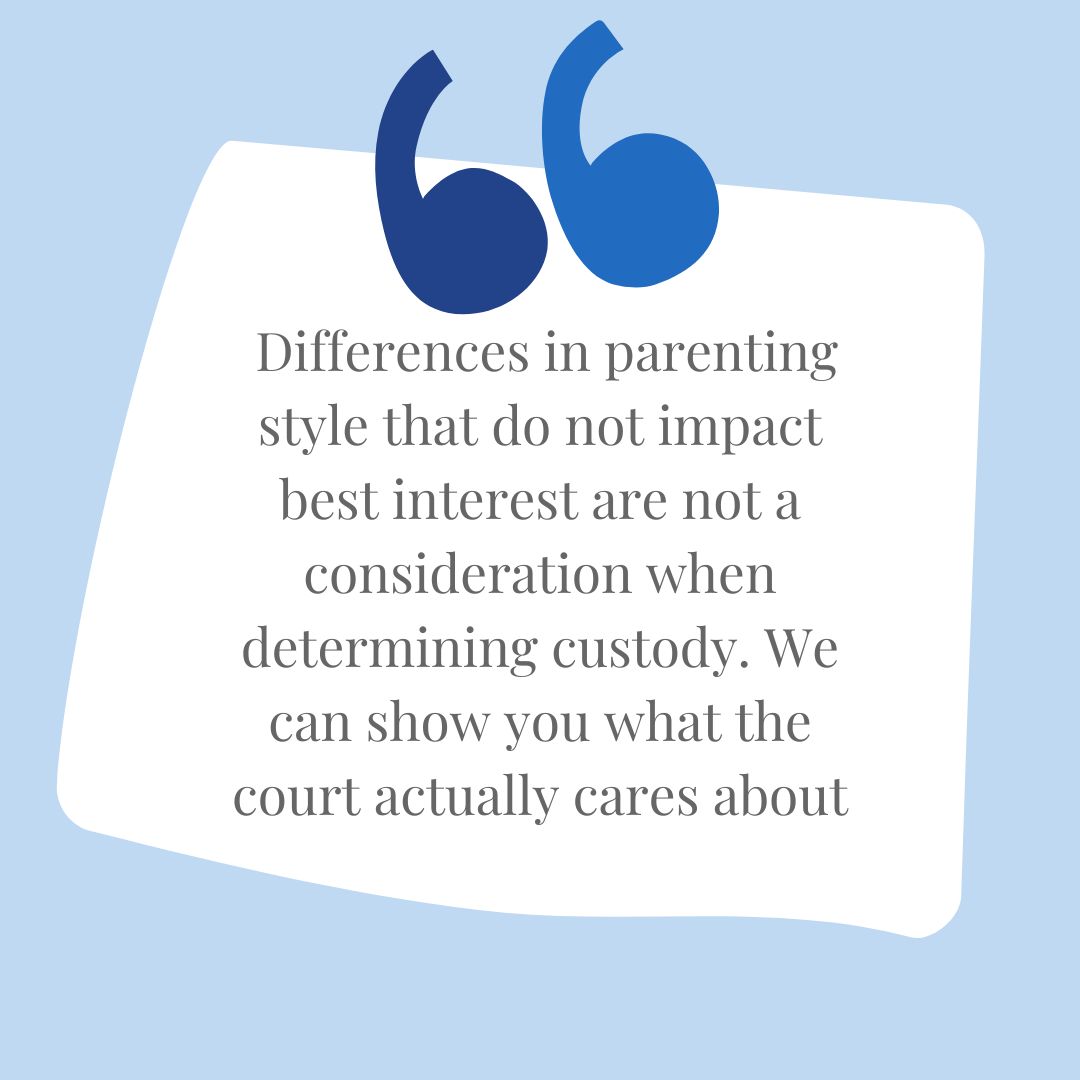This is How Child Custody is Determined in California
Child custody is determined in California by an agreement or a contested hearing. There is no other way. This article will focus on the contested hearing since most parents who read it want to know how a court may decide child custody issues. To learn more about uncontested custody agreements, check out our article on avoiding a custody battle.
First, let's discuss a contested child custody hearing in California. A contested child custody hearing occurs when the parents cannot agree on a custody arrangement and ask the court to make the decision for them.
These hearings typically result from ongoing disputes about who should have primary custody or what the parenting schedule should look like. The court listens to evidence from both parents, reviews reports (sometimes from experts like child custody evaluators), and then decides based on the child's best interests.
How Does a California Family Law Judge Determine Child Custody?
Now we get to the core question - how is child custody determined in a contested California hearing?
Best Interests Standard
Determination depends entirely on what is in the children's best interests. Best interests include the kids' health, safety, education, and general welfare. Family Code Section 3011 lays out the factors.
When a family law judge looks at the best interest, they are not supposed to care what either parent wants. They are required to care about what makes sense for the children.
Considerations about a child's health include the physical and mental well-being of the child. The court will look at whether either parent has a history of medical neglect or if there are any ongoing health concerns. They will also consider whether the parent is providing appropriate medical care, including regular check-ups and timely attention to health issues that arise.
Safety issues include whether either parent has a history of domestic violence or child abuse, alcohol abuse or drug addiction, or other behaviors that could put the child at risk. The court also considers the home environment, including whether the child lives in a safe, clean, and stable home. Unsafe living conditions, the presence of abusive individuals, or neglectful behavior will weigh heavily against a parent. Making false allegations of child abuse is also a serious safety issue.
Education issues depend on a child's age but generally include the stability of the child's school environment, parental involvement in their education, and whether one parent's plan may disrupt the child's academic progress. The court will consider whether moving schools or changing educational plans will negatively impact the child, especially if they are thriving in their current school setting.
General welfare refers to the child's overall quality of life under each parent's care. This includes emotional stability, the child's social relationships, extracurricular activities, and general support for the child's well-being. It also covers a parent's ability to meet the child's day-to-day needs, such as providing nutritious food, ensuring proper sleep schedules, and fostering emotional growth.
Sex, gender identity, gender expression, or sexual orientation are not best interest factors.
Significant Change of Circumstance Standard
Sometimes, the law prevents the court from jumping right into the best interest standard. For example, if determining child custody (which is usually a significant change in physical custody or the legal custody order) requires modifying a final child custody order (like an order on a judgment), the person asking for modification must first show a significant change of circumstance.
That means the parent must demonstrate that something substantial has changed since the last custody order was made. This could be a change in the child's needs, a change in the parents' living situations, or new evidence of something like neglect or abuse. It must be a significant shift, not just a minor issue or disagreement.
If the court finds a significant change of circumstance, it will decide what is in the children's best interest.
However, even with a final child custody order, if the parent asking for a change is not asking for a major change (for example, a small modification in parenting time), then the court does not have to first find a significant change of circumstance. In that situation, the court can skip to the best interest question.
The Family Law Judge Does Not Care About Parenting Styles

Some people believe they are the better parents because they do not agree with the other parent's parenting style. Such parents may even have legitimate reasons for their beliefs.
Family law judges do not get caught up in nuanced parenting styles when determining child custody.
California's laws favor frequent and regular contact between the children and both parents.
Therefore, a judge will not be swayed when determining child custody because one parent is a little better at caring for the child. What moves the court are the bigger health, safety, education, and general welfare issues.
How Will Child Custody be Determined in Your Case?
Our knowledge, experience, and result-focused representation have helped many parents with child custody cases.
Our Southern California offices are conveniently located. Let's discuss your situation.
If you first want to learn more about custody laws, check out our amazing guide on California's child custody laws. It will help you understand how all aspects of child custody work in this State.
